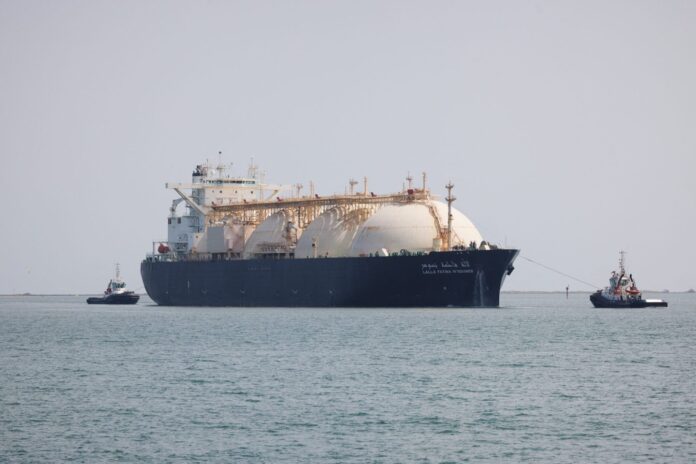In the first half of this year, shipments of Russian liquefied natural gas (LNG) to France more than doubled, according to new trade data analyses, even as Europe strives to reduce energy purchases that fund Russia’s invasion of Ukraine. While Europe has implemented restrictions on Russian oil imports, natural gas imports remain permissible. France has emerged as the largest importer, with EU countries overall increasing their imports of Russian LNG by 7% in the first half of this year compared to the same period last year. Oleh Savytskyi, a founding member of the nonprofit Razom We Stand, which advocates for stricter sanctions on Russian fossil fuels, criticized the EU’s goal of phasing out all Russian fossil fuels by 2027 as being “appallingly off track.” He argued that countries buying Russian LNG are undermining Europe’s energy transition and indirectly funding Russia’s war efforts.
European governments have expressed concerns that a complete ban on Russian gas imports would lead to a sharp increase in energy and heating costs, severely affecting industrial gas users as well. The analysis, conducted by the Institute for Energy Economics and Financial Analysis (IEEFA), a U.S.-based nonprofit focused on accelerating the global transition to sustainable energy, examined data from Kpler, a shipping tracker, and ICIS, a commodity data provider. The institute reported that France imported nearly 4.4 billion cubic meters of Russian LNG in the first half of this year, up from over 2 billion cubic meters during the same period last year. Spain and Belgium, the next largest importers, saw a 1% increase and a 16% decrease in imports, respectively.
TotalEnergies, the French energy giant responsible for the largest share of these imports, stated that it was bound by contracts signed before Russia’s invasion of Ukraine. France’s Finance and Economy Ministry told the Associated Press that attacks by Houthi rebels on ships navigating the Suez Canal have reshaped LNG import routes, making it harder for gas from the Middle East to reach Europe, while Russia’s Arctic route remains unaffected. The ministry also pointed out that France serves as one of Europe’s main entry points for LNG, with seven terminals, the same number as Spain.
As France increased its imports of Russian LNG, it reduced imports from other suppliers, such as the United States, Angola, Cameroon, Egypt, and Nigeria—a decrease that nearly matched the increase in Russian LNG imports, according to the analysis. None of the other countries’ LNG exports were impacted by the Red Sea attacks.
Pricing data for Russian LNG is not publicly available, but it generally sells at a slight discount as some buyers avoid it, according to Jason Feer, global head of business intelligence at energy consultancy Poten and Partners.
Interestingly, the additional gas isn’t being used domestically in France. The country’s demand for gas fell by 9% in the first half of this year compared to the previous year. Meanwhile, France’s gas exports to Belgium via pipeline increased by nearly 10% during the same period, though it remains unclear how much of this export was Russian LNG. Feer noted, “What that tells you is people are making money off this trade.” Russia’s largest LNG project is located in the Yamal Peninsula within the Arctic Circle, a joint venture with TotalEnergies, which holds a 20% stake. Under a 2018 contract, TotalEnergies is committed to purchasing 4 million tons of gas from the project annually.
TotalEnergies stated via email that it is legally bound to honor its contracts and will continue to do so “as long as European governments deem Russian gas necessary for the European Union’s security of supply.” The company added that only the imposition of new sanctions could lead to the suspension of these purchases, and claimed that its imports of Russian LNG into Europe had actually decreased during the period studied. An EU Commission spokesperson noted that overall imports of Russian gas have significantly decreased between 2021 and 2023. A temporary increase in volume, he argued, “does not undermine the EU’s achievements over the past two years,” adding that the bulk of necessary gas is now supplied by “reliable partners, such as Norway and the U.S.”
However, Savytskyi from Razom We Stand urged the EU to enforce a complete embargo on Russian gas. He criticized TotalEnergies for keeping Europe dependent on Russian energy, saying, “TotalEnergies should not have a free pass to keep Europe hooked on Russian gas.”



